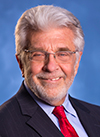Friends and Fellow Lawyers:
Our work as lawyers often exacts an emotional and psychological toll. Recent evidence suggests that toll may be more than we realize.
 Ralph Cagle, U.W. 1974, is of counsel to Hurley, Burish & Stanton, S.C., Madison, practicing principally in professional responsibility law and serving as a mediator. He is also an emeritus clinical professor at the U.W. Law School.
Ralph Cagle, U.W. 1974, is of counsel to Hurley, Burish & Stanton, S.C., Madison, practicing principally in professional responsibility law and serving as a mediator. He is also an emeritus clinical professor at the U.W. Law School.
A comprehensive study of substance abuse, depression, and anxiety among lawyers in 19 states, including Wisconsin, was recently published in the Journal of Addiction Medicine. (For study findings, see“Landmark Study: U.S. Lawyers Face Higher Rates of Problem Drinking and Mental Health Issues,” Wisconsin Lawyer, February 2016.)
The finding that substance abuse and mental health problems are most acute among new lawyers is particularly distressing.
What can we constructively do as bar associations and concerned professionals to address the problems the study revealed?
Wisconsin has a stellar lawyer assistance program. The Wisconsin Lawyers Assistance Program’s (WisLAP) caring, skillful, and trained volunteers, working in strict confidence, have helped many Wisconsin lawyers seeking assistance for alcohol, drug, and behavioral health problems. Even when lawyers resist assistance, WisLAP still helps on referral from concerned family, friends, or colleagues. WisLAP volunteers save lives, families, and careers.
But for every lawyer helped by WisLAP, more who need assistance are unidentified and suffer in self-enforced silence. That hidden suffering might be our biggest challenge.
Here are four things working together we can do.
First, lawyers with substance abuse, depression, or other behavioral health problems should be honest with themselves and seek out available help. That’s never easy for anyone, but may be particularly hard for lawyers, who feel compelled to project a stoic image of strength and invulnerability to clients, colleagues, and others.
Second, we must pay attention to the often-masked struggles of our colleagues, especially younger lawyers. When we see signs of emerging problems, we must take the time to listen, offer support, and monitor the person’s condition. Before problems become acute, we should raise the issue directly or even actively intervene.
You’re not alone. The Wisconsin Lawyers Assistance Program can help. WisLAP confidential 24-hour hotline, (800) 543-2625.
Third, when lawyers address these problems and are moving toward recovery, we need to provide them a supportive work environment that facilitates recovery.
Fourth, because the highest incidence of substance abuse and behavioral health problems is among new lawyers, bar associations and law schools must collaboratively examine how to better serve students and young lawyers, both with information about recognizing risks and symptoms and with programs to help them constructively deal with the stresses of a new professional life.
For me this is a personal issue.
When I was a new lawyer, wanting to succeed and be recognized as strong and accomplished, I became severely depressed. Fearing the risks of discovery, I covered my illness. But I got lucky. Concerned family, friends, and colleagues saw through the illusion and actively intervened. Recovery involved hospitalization and therapy. I am forever grateful for their decisive action that saved me. And I am grateful to my colleagues who supported me and my practice through my recovery.
So, here’s our plan: let’s all be honest about these challenges, and let’s really look out for each other.
